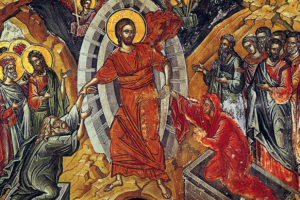“…you become better and better by looking for so great a good which is both sought in order to be found and found in order to be sought…” -St. Augustine
“Ethics” means more than understanding how one should act in a certain situation in order to be free from blame. This type of ethics is sinful man at his worst, worrying only about himself. Dietrich Bonhoeffer says that this type of ethics started at the Fall: “The knowledge of good and evil seems to be the aim of all ethical reflection. The first task of Christian ethics is to invalidate this knowledge.” It is well known that the first post lapsum discussions were concerned with assigning blame.
If we are going to speak of “ethics”, we must speak of the form of Jesus Christ. The Greek word from which ethics is derived asks us to conceive of the discipline in this way—the word means something like “pattern” or “character”. Christian ethics, then, is the question as to how we pattern our lives after Jesus Christ. If we speak abstractly of the beautiful, the true, or the good, we may be doing ethics, but it is certainly not Christian ethics. The form from whence ethics derives is the narrative structure of the life of Jesus Christ. Jesus Christ is the good.
Robert Jenson says somewhere that the difference between a living person and a dead person is that the living person can surprise us. Jesus Christ is alive from the dead; he can, and will, surprise us. This makes uneasy the ethicist in all of us. Is there no fixed form of the good? Not to worry, the being of Jesus Christ is complete. “It is finished”, after all. When God raised Jesus from the dead, he revealed that the man from Nazareth was the revelation of God’s infinite life. Jesus is the origin, pattern, and telos of God’s own life. This man of Nazareth is therefore the pattern for the infinitely occurring acts of God. The good is infinitely instantiated wherever God is at work through the Spirit to bring glory to Jesus.
Given the fact that the good—that is, Jesus Christ—is on the move, ethics consists always in memory and anticipation. Nothing in the church’s life brings these two together in one movement like prayer. Prayer is the posture of searching. All genuine ethical reflection begins in prayer. In prayer one remembers who God is. Detached from the absorptions of our lives, we recall our true past as those willed and ordained as God’s good creatures. Only on the basis of this memory will we be able to see and perceive the good on the horizon.
The anticipation in ethics is my action. In memory I am released to perceive the good and move towards it in hope. Thus prayer leads to the concrete embodiment of the good in the world. Most of us secretly believe that prayer is escapism, a way to abstract ourselves entirely from the world; we are secretly wrong. It is only in prayer that we will escape the sloth that so easily besets us. Perceiving the good through the memory of prayer, I am energized to move passionately towards it with the ravenous hunger that enables the parched wanderer to reach a desert oasis. Or like a soldier in the midst of the horror of war, I am sustained by the promised beauty of erotic letters.
So Christian ethics is, in the end, a chase after the risen one, the one who may always surprise us. It is essentially memory and anticipation, knowing and doing. And the bridge between the two movements is, of course, prayer. Prayer is ethics. This is why the apostle Paul can speak of ethics in terms of being formed through worship. It is only the sacrifice of our whole selves to the God who raised Jesus that will enable us to “discern what is the will of God, what is good” (Rom 12:2).





4 Comments
Leave your reply.